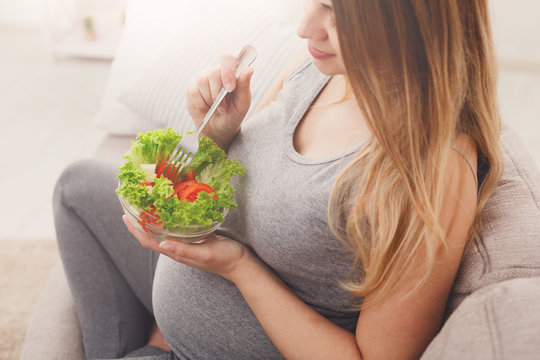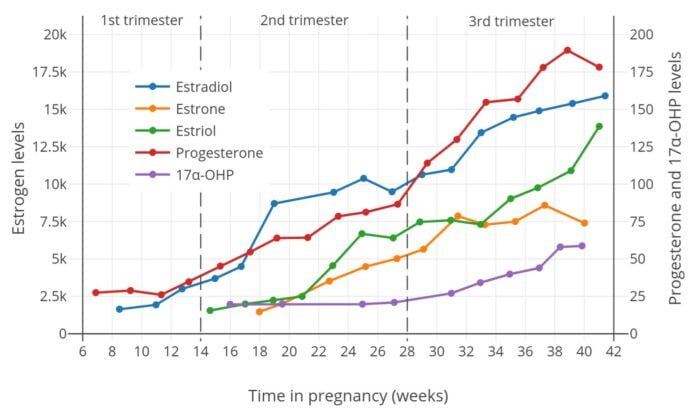Pregnancy is a beautiful journey, but it also requires significant attention to every detail. From the food you eat to the activities you engage in, every decision plays a crucial role in your baby’s health and development. One essential aspect that should never be overlooked is prenatal vitamins. These supplements contain vital nutrients that support fetal growth and development while ensuring a healthy pregnancy. With countless options available in the market, choosing the right one can be an overwhelming task. In this comprehensive guide, we’ll explore the top 10 best prenatal vitamins that every expecting mother should consider for a healthy pregnancy.
Why Prenatal Vitamins are Important During Pregnancy
Prenatal vitamins are crucial during pregnancy because they provide essential nutrients that support the developing fetus. A healthy diet can help, but it’s challenging to consume adequate amounts of all required nutrients through food alone. Prenatal vitamins ensure that you meet the necessary nutrient requirements for your growing baby and keep yourself healthy as well.
These supplements contain key vitamins and minerals, such as folic acid, iron, calcium, vitamin D, and omega-3 fatty acids. Folic acid helps prevent neural tube defects; iron aids in carrying oxygen throughout the body; calcium is essential for building strong bones and teeth in a developing fetus; vitamin D supports overall bone health, while Omega-3s promote brain development.
Many prenatal vitamins also contain other important micronutrients like iodine or choline which assist with fetal growth and development. It’s vital to consult with your healthcare provider before starting any new supplement routine as they may recommend specific brands or types based on individual health factors.
The Top 10 Prenatal Vitamins for a Healthy Pregnancy
**
The Top 10 Prenatal Vitamins for a Healthy Pregnancy
Choosing the right prenatal vitamin can be overwhelming, but we have compiled a list of the top 10 options to consider. Here are some of the best prenatal vitamins available:
1. Garden of Life Vitamin Code Raw Prenatal
This non-GMO and gluten-free option includes folate, iron, and ginger to help with morning sickness.
2. Honest Company Whole-Food-Based Prenatal
Made with organic fruits and vegetables, this vitamin is gentle on sensitive stomachs while still providing essential nutrients like folic acid.
3.Rainbow Light Prenatal One Multivitamin
Packed with vitamins A through E, plus probiotics and enzymes for digestion support.
4.Seeking Health Optimal Prenatal Capsules
Contains methylated forms of folate and B12 for better absorption in those who may have an MTHFR gene mutation.
5.New Chapter Perfect Prenatal Vitamins
This whole-food fermented multivitamin provides herbs like red raspberry leaf along with key nutrients like iron and iodine.
6.Nature Made Multi-Prenatal Tablets
A budget-friendly pick that provides crucial nutrients without any added colors or flavors.
7.Thorne Basic Nutrients III Without Copper & Iron
An allergen-free option suitable for individuals looking to get their copper or iron from other supplements or foods they consume throughout pregnancy diet
8.Healthy Mama Be Well Rounded! All-Natural Gummy PreNatal Vitamin
A delicious alternative compared to pills which provides omega-3s from algae oil instead of fish oil making it safe even for vegetarians/vegans
9.Naturelo Premium Plant-Based Supplement For women
Perfect Gluten-Free solution that not only contains essential nutriets during pregnancey but also provide additional support towards hair fall reduction postpartum (restoration)
10.MegaFood Baby & Me Prenatal Vitamin
A whole food based Multi-Vitamin with immune-supportive herbs and is easy on the stomach.
When deciding which prenatal vitamin to take, consult with your doctor first and consider any special needs or dietary restrictions you may have.

How to Choose the Right Prenatal Vitamin for You
When it comes to choosing the right prenatal vitamin, it’s important to consider your individual needs and preferences. Consulting with your healthcare provider is a crucial first step in determining which prenatal vitamin is best for you. They can help you identify any specific nutrient deficiencies you may have and recommend a vitamin that meets those needs.
Another important factor to consider is the form of the vitamin. Prenatal vitamins come in various forms such as capsules, tablets, gummies, and even drink mixes.
Capsules and tablets are often more affordable and have a longer shelf life, while gummies may be more appealing for those who struggle with swallowing pills. Drink mixes can be a convenient option for those who prefer to mix their vitamins into a beverage.
Lastly, checking the label is essential when selecting a prenatal vitamin. Look for one that contains at least 400-800 mcg of folic acid, as well as iron, calcium, and vitamin D.
It’s also important to avoid any ingredients that may cause an allergic reaction or discomfort. By taking the time to choose the right prenatal vitamin for you, you can ensure that you are providing your body with the necessary nutrients for a healthy pregnancy.

What to Look for in a Quality Prenatal Vitamin
Essential Nutrients to Consider in a Prenatal Vitamin
When choosing a prenatal vitamin, it’s important to look for key nutrients that are essential for a healthy pregnancy.
Folic acid is one of the most important nutrients to consider, as it helps prevent birth defects in the baby’s brain and spine.
Iron is also crucial, as it helps prevent anemia and supports the baby’s growth and development.
Other important nutrients to look for include calcium, vitamin D, omega-3 fatty acids, and vitamin B12. It’s also important to choose a prenatal vitamin that contains the right dosage of each nutrient, as too much or too little can be harmful.
Understanding the Importance of Dosage and Absorption Rates
When looking for a quality prenatal vitamin, it’s important to pay attention to the dosage and absorption rates of the nutrients.
Dosage is the amount of each nutrient included in the vitamin, and it’s important to make sure that you’re getting enough of each nutrient for a healthy pregnancy.
Absorption rate refers to how well your body is able to absorb and utilize the nutrients in the vitamin. Look for vitamins that contain highly absorbable forms of nutrients, such as methylated folate instead of folic acid. Choosing a prenatal vitamin with proper dosage and absorption rates can help ensure that you and your baby are getting the necessary nutrients for a healthy pregnancy.
Choosing the Right Type of Prenatal Vitamin for You
When choosing a prenatal vitamin, it is important to consider what type of vitamin will work best for you. Some women may prefer a gummy or chewable option, while others may opt for a traditional pill form.
It is also important to consider any specific dietary restrictions you may have and whether the prenatal vitamin meets those needs (e.g. gluten-free, vegan). Additionally, make sure that the prenatal vitamin contains essential nutrients such as folic acid, iron, calcium and omega-3 fatty acids which are crucial for both maternal and fetal health during pregnancy. Consider talking to your healthcare provider about which type of prenatal vitamin is most suitable for you.
Identifying Harmful Ingredients to Avoid in Your Prenatal Vitamin
When selecting a prenatal vitamin, it’s important to look out for harmful ingredients that could potentially harm you or your growing baby.
Avoid any prenatal vitamins that contain high levels of Vitamin A, as excessive amounts can lead to birth defects in babies. Additionally, steer clear of supplements that contain Magnesium Stearate, a common ingredient used as a filler in many vitamins, which may inhibit nutrient absorption and cause digestive issues.
Always read the label carefully and research each ingredient before making a decision. Opting for natural and organic options can also help minimize exposure to harmful chemicals present in synthetic alternatives.
The Benefits of Taking Prenatal Vitamins During Pregnancy
Benefits of Taking Prenatal Vitamins During Pregnancy
Expecting mothers are advised to take prenatal vitamins in order to provide their growing baby with the essential nutrients needed for optimal development. These vitamins help ensure that both mother and baby receive adequate amounts of important vitamins and minerals.
One key benefit is that prenatal vitamins can reduce the risk of birth defects such as spina bifida, a condition where the spinal cord doesn’t develop properly. They also help boost immunity and prevent infections during pregnancy by providing essential nutrients like vitamin C, E, D & zinc which work together improve overall immune function.
In addition to preventing birth defects and boosting immunity, the benefits of taking prenatal vitamins extend beyond just supporting healthy fetal growth.
Research shows that women who take these supplements experience fewer cases of morning sickness, low iron levels and fatigue during pregnancy because they provide a concentration of folate while contributing to red blood cell production.
Overall, it’s clear that taking prenatal vitamins is an important part of maintaining good health for both mother and developing fetus throughout all stages off pregnancy through infancy.

Common Ingredients Found in Prenatal Vitamins and Their Benefits
Folic Acid: Folic acid is one of the most important ingredients to look for in a prenatal vitamin. It helps to prevent birth defects, such as neural tube defects, which can affect the baby’s brain and spine development. Folic acid also supports placental development and healthy growth of the fetus.
Iron: Iron is essential during pregnancy because it helps to build red blood cells that carry oxygen throughout your body. Pregnant women need more iron than usual to support their growing baby’s needs. An iron deficiency can lead to anemia, causing fatigue, weakness, and even developmental problems in the baby.
Other important ingredients found in prenatal vitamins include calcium for bone health, Vitamin D for immune system function and calcium absorption, Omega-3 fatty acids for fetal brain development, and Zinc for cell division and growth. Always check with your healthcare provider about any specific nutrient needs you may have during pregnancy before selecting a prenatal vitamin.

How to Incorporate Prenatal Vitamins into Your Daily Routine
Incorporating prenatal vitamins into your daily routine is important for the health of both you and your growing baby. It’s recommended to take them with food in order to aid absorption, so many women choose to take them with breakfast or dinner each day. If taking a pill is difficult for you, there are chewable or gummy options available as well.
It’s also important to pay attention to any specific instructions on the bottle, such as not taking certain vitamins at the same time as others. Some prenatal vitamins may cause nausea or constipation, so be sure to drink plenty of water and talk to your healthcare provider if these side effects persist.
Additionally, make sure that you’re storing your prenatal vitamins properly by keeping them in a cool, dry place away from direct sunlight. This will help ensure their effectiveness throughout your pregnancy.
Remember that while prenatal vitamins are an important supplement during pregnancy, they should not replace a healthy diet full of nutrient-rich foods.
Tips for Maximizing the Benefits of Your Prenatal Vitamin
Maximizing Benefits of your prenatal vitamin is essential for a healthy pregnancy. To get the most out of your supplement, take it at the same time every day. This will help your body absorb the nutrients more efficiently. If you experience nausea or vomiting, try taking your prenatal vitamin with food or before bed.
Additionally, avoid taking your prenatal vitamin with calcium-rich foods or supplements as they can interfere with iron absorption. Drinking plenty of water throughout the day can also help your body absorb the nutrients in your prenatal vitamin. If you miss a dose, don’t double up on the next one; just continue with your regular schedule. Remember to consult with your healthcare provider before starting any new supplement regimen during pregnancy.

Potential Side Effects of Taking Prenatal Vitamins and How to Avoid Them
Common Side Effects of Prenatal Vitamins and How to Manage Them
Nausea and constipation are the most common side effects of prenatal vitamins. To manage nausea, try taking your vitamin with food or before bed. Ginger supplements or tea can also help alleviate symptoms. To combat constipation, increase your water intake and consume more fiber-rich foods. If these methods don’t work, talk to your healthcare provider about switching to a different brand or adjusting your dosage. It’s important to note that some prenatal vitamins may cause allergic reactions, so be sure to consult with your doctor if you experience any unusual symptoms after taking them.
Overcoming Nausea Caused by Prenatal Vitamins
If you experience nausea when taking prenatal vitamins, there are a few things you can do to help alleviate the symptoms. First, try taking your vitamin with food or right before bed to avoid an empty stomach. You can also try switching to a different brand of prenatal vitamin that may be easier on your stomach. Look for those labeled “gentle” or “easy-to-digest”. Drinking ginger tea or sucking on ginger candy has also been known to help with nausea caused by vitamins. Remember, it’s important to continue taking your prenatal vitamins throughout pregnancy so don’t hesitate to talk to your doctor about finding a solution that works for you.
Dealing with Constipation and Diarrhea from Prenatal Supplements
Some women may experience constipation or diarrhea when they start taking prenatal vitamins. This is because the iron in some prenatal supplements can be difficult to digest and absorb, leading to digestive issues. To avoid constipation, make sure you’re staying hydrated and eating a diet rich in fiber. Some women find relief by taking their vitamin with food or before bed.
If you are experiencing diarrhea after starting your prenatal vitamin regimen, talk to your doctor about switching brands or adjusting your dosage. It’s important not to stop taking your supplement altogether, as it provides vital nutrients for both you and your growing baby. Remember that every woman’s body is different, so don’t hesitate to seek advice from a medical professional if you have concerns about side effects.

Frequently Asked Questions About Prenatal Vitamins Answered
What are the best prenatal vitamins? The best prenatal vitamins are those that contain the essential nutrients needed for a healthy pregnancy. Look for vitamins that contain folic acid, iron, calcium, and vitamin D. It’s also important to choose a vitamin that is easy to digest and doesn’t cause any side effects.
When should I start taking prenatal vitamins? It’s recommended to start taking prenatal vitamins as soon as you start trying to conceive. This is because the first few weeks of pregnancy are crucial for fetal development, and taking prenatal vitamins can help ensure that your baby gets all the nutrients they need. If you find out you’re pregnant and haven’t been taking prenatal vitamins, it’s never too late to start. Talk to your healthcare provider about which vitamin is right for you and when to start taking it.
In conclusion, taking prenatal vitamins is crucial for a healthy pregnancy. With so many options available, it can be overwhelming to choose the right one. By following this comprehensive guide and considering your own unique needs, you can feel confident in selecting the best prenatal vitamin for you and your growing baby. Remember to always consult with your healthcare provider before starting any new supplement regimen and listen to your body throughout the process. Happy and healthy pregnancy!
Common Questions
Q: Who should take prenatal vitamins?
A: Pregnant women or those trying to conceive should take prenatal vitamins.
Q: What are the benefits of taking prenatal vitamins?
A: Prenatal vitamins can help support fetal development and prevent birth defects.
Q: How do I choose the right prenatal vitamin?
A: Look for a prenatal vitamin with folic acid, iron, and calcium; consult with a doctor if unsure.
Q: What if I have trouble swallowing prenatal vitamins?
A: Try chewable or liquid prenatal vitamins, or ask your doctor about alternative options.
Q: How long should I take prenatal vitamins?
A: Take prenatal vitamins throughout pregnancy and while breastfeeding, as recommended by a doctor.
Q: What if I experience side effects from prenatal vitamins?
A: Contact a doctor if you experience nausea, constipation, or other side effects from prenatal vitamins.

